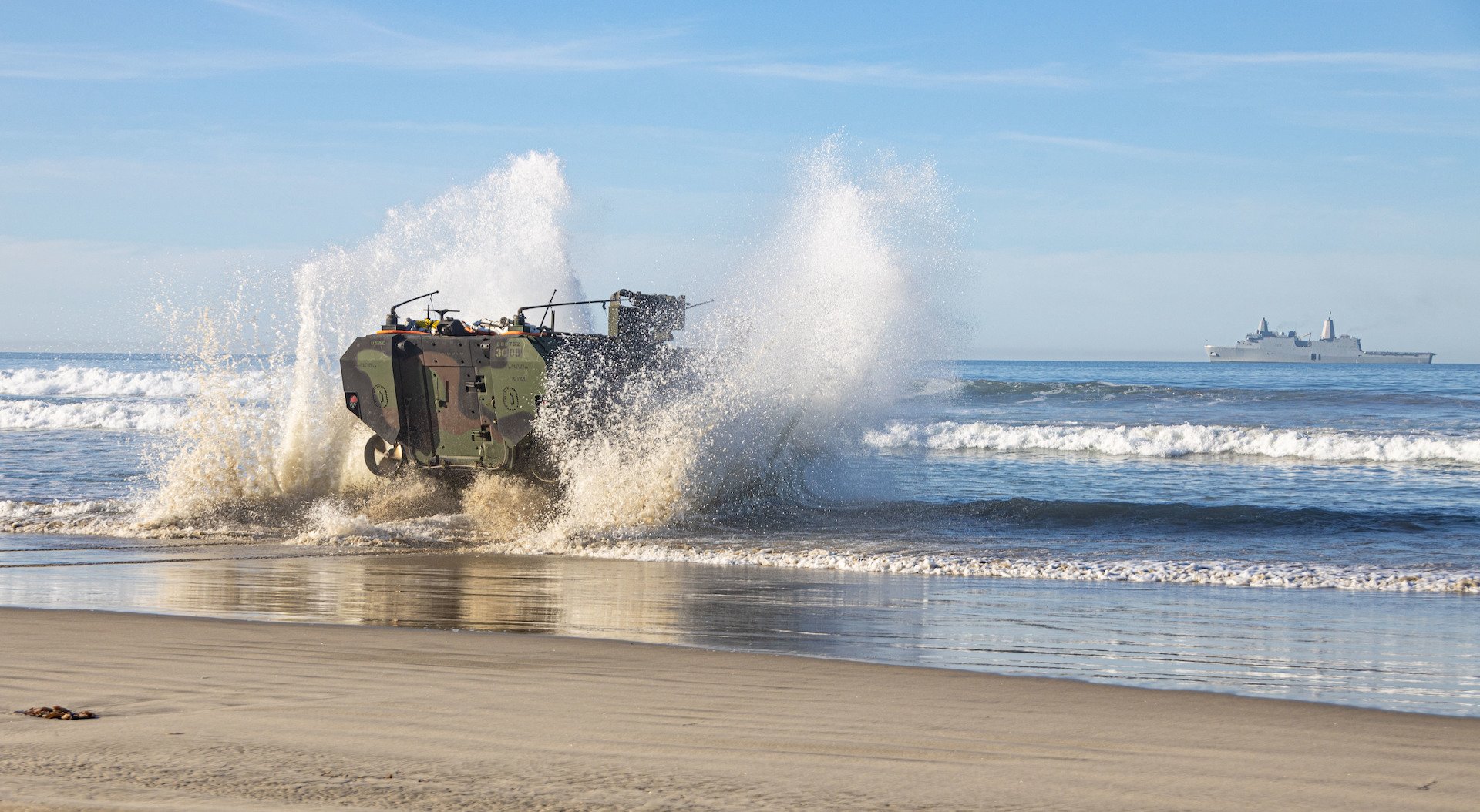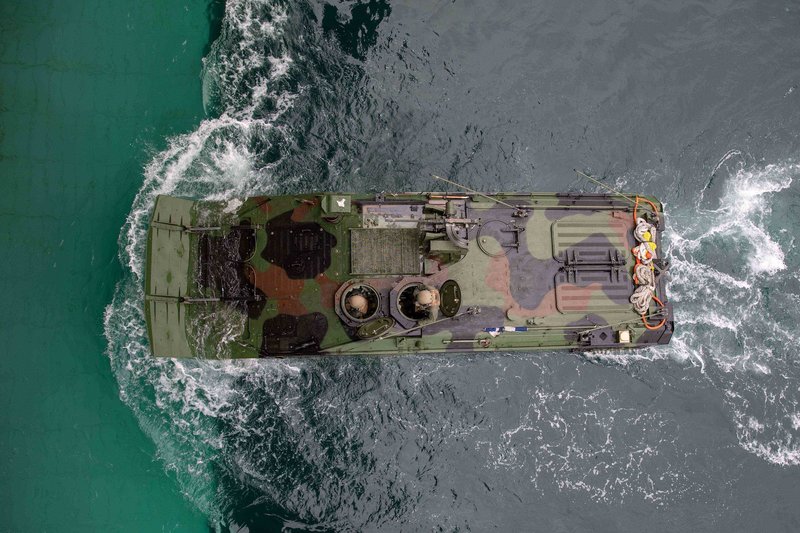Two of the Marines’ Newest Amphibious Combat Vehicles Got Stuck in Big Waves

US Marines assigned to the 3rd Assault Amphibian Battalion, 1st Marine Division, drive an Amphibious Combat Vehicle into the water toward the USS Anchorage at Camp Pendleton, California, Feb. 12, 2022. US Marine Corps photo by Lance Cpl. Willow Marshall.
Two Marine Amphibious Combat Vehicles, or ACVs, foundered and had to be abandoned in high surf at Camp Pendleton this week, prompting the service to announce it is suspending all water-based training with the vehicles.
In an accident on Pendleton's Southern California beach Tuesday, July 19, an ACV rolled over in high surf and a second became disabled. The Marines and sailors on board abandoned both and, the Marines said, were all safely accounted for with no serious injuries.
ACVs are the Marines' newly introduced primary over-the-beach personnel carriers, replacing the Vietnam-era Assault Amphibious Vehicles, or AAVs. AAVs, which were phased out in recent years, were at the heart of a deadly 2020 accident that killed nine when one sunk in California waters.
This week's incident was first reported by the San Diego Union-Tribune, and video of the incident was posted to YouTube by the US Naval Institute's USNI News.
A Marine press release said the incident is under investigation.
Video of the incident appears to show the ACVs having difficulty in high surf. According to a fact sheet from its manufacturer, BAE Systems, an ACV weighs 35 tons and is approximately 10 feet high.
BAE's website says ACVs are "capable of operating in conditions up to Sea State 3 and through a 9-foot plunging surf." Sea State 3 refers to open ocean conditions with 4-foot waves.
In the video, waves crashing over the ACVs appear to be as high or higher than the vehicles. Their bottom portions are submerged in the water.
At one point Marines are shown jumping from one of the vehicles.

A USMC Amphibious Combat Vehicle, or ACV, with the 3d Assault Amphibian Battalion, 1st Marine Division, enters the well deck of amphibious assault ship USS Makin Island, April 10, 2022.Navy photo by Mass Communication Specialist 2nd Class Jacob D. Bergh
The service reported that all Marines on the vehicles were accounted for after the event. "Marines in both ACVs conducted their immediate action drills and safely returned to shore," the Marines said in a statement.
A release from the Marines said that waterborne operations with ACVs would be paused "out of an abundance of caution" across the force.
“This is the right thing to do,” said Lt. Gen. David Furness, the deputy commandant of the Marine Corps. “A pause on ACV waterborne operations will give us time to conduct an investigation, learn from this event, and ensure our assault amphibian community remains ready to support our nation.”
The ACVs are rated to carry 13 passengers plus three crew, and can travel at 6 knots in the water and up to 14 miles at sea.
READ NEXT: ‘Jettison!’ — A Chinook Crew’s Incredible Story of Survival Over Afghanistan

Matt White is a former senior editor for Coffee or Die Magazine. He was a pararescueman in the Air Force and the Alaska Air National Guard for eight years and has more than a decade of experience in daily and magazine journalism.
BRCC and Bad Moon Print Press team up for an exclusive, limited-edition T-shirt design!
BRCC partners with Team Room Design for an exclusive T-shirt release!
Thirty Seconds Out has partnered with BRCC for an exclusive shirt design invoking the God of Winter.
Lucas O'Hara of Grizzly Forge has teamed up with BRCC for a badass, exclusive Shirt Club T-shirt design featuring his most popular knife and tiomahawk.
Coffee or Die sits down with one of the graphic designers behind Black Rifle Coffee's signature look and vibe.
Biden will award the Medal of Honor to a Vietnam War Army helicopter pilot who risked his life to save a reconnaissance team from almost certain death.
Ever wonder how much Jack Mandaville would f*ck sh*t up if he went back in time? The American Revolution didn't even see him coming.
A nearly 200-year-old West Point time capsule that at first appeared to yield little more than dust contains hidden treasure, the US Military Academy said.












